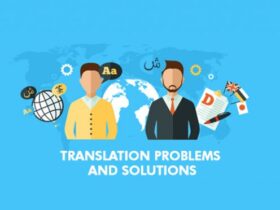How to Study for Accountancy Exams Without Burning Out

Late nights, highlighters everywhere, and coffee cups piling up? Sound familiar? Studying for accountancy exams can feel like juggling calculators on a tightrope. But it doesn’t have to come at the cost of your sleep, sanity, or social life.
Some students treat exam prep like a sprint. In accountancy, it’s more of a marathon. And like any good runner, you need pacing, fuel, and breaks. Let’s unpack how to study smarter without frying your brain in the process.
Build a Routine You Can Stick To
Consistency beats cramming. A regular study schedule makes it easier for your brain to absorb the material and for you to track progress. Spacing your sessions over weeks rather than stuffing everything into two weekends makes revision feel less like an emergency drill.
Set aside blocks of time when your brain works best. Morning, afternoon, or post-dinner, whatever suits you. The goal is to make studying a part of your daily rhythm, not a last minute scramble.
Make It Make Sense
Memorising alone won’t cut it. Focus on understanding. Accountancy involves more than repeating terms. You need to grasp why the numbers align the way they do. Concepts like double-entry bookkeeping or deferred tax make a lot more sense when you apply them to real-world scenarios.
Use practice questions as checkpoints. If you can explain a topic aloud without your notes, you’re on the right track. Bonus points if you can teach it to a friend or even your pet.
Study with Structure, Not Chaos
Study notes shouldn’t resemble a paper explosion. Organise them in a way that makes future review feel less like treasure hunting and more like a clear map. Some students swear by colour-coded folders. Others prefer digital flashcards. Choose what keeps you focused and helps you recall information under pressure.
If you’re aiming for a master’s degree later on, building solid habits now gives you a serious leg up. A master’s in accounting covers advanced material, but also requires discipline and time management. It’s about discipline, time management, and being comfortable with complex concepts.
Avoid the Burnout Trap
Study breaks are a strategy, not slacking off. They recharge your brain so you can actually retain what you’re learning. A 10-minute breather after every 50-minute session can keep your brain fresh. Step away from the screen, stretch, grab a snack, or just stare at a plant. Anything but doomscrolling.
Also, don’t cut sleep for one more hour of revision. A tired brain won’t retain anything. Sleep consolidates memory. Reading about capital allowances at 3 a.m. won’t help if you forget it the next day.
Watch What You Eat (and Drink)
Revision snacks are part of the process, but pick ones that don’t turn you into a sugar-zombie. Nuts, fruits, and water go further than fizzy drinks and crisps. Fuel your body right, and your brain follows.
This matters even more if you’re thinking long-term. Whether you stick with accountancy as a job or pursue a master’s degree in accounting, mental clarity and stamina are assets you can’t cram for.
Ask Questions, Even the Basic Ones
Never assume you’re the only one confused. Whether it’s in a WhatsApp group, during a class, or in a study session, ask. Getting clarity early prevents errors later.
This matters if you’re preparing for a qualification or working toward higher studies like a master’s in accounting. Small doubts now can snowball into major hurdles in more advanced modules.
Read, Write, Solve, Repeat
Passive reading is like trying to learn piano by watching someone else play. Do the work. Solve problems. Write your own summaries. When you engage actively, the material sticks.
Try past exam papers under timed conditions. It mimics the real setting and builds your stamina. Treat it like match practice before game day.
Keep the End Goal in Sight
It helps to remind yourself why you’re doing this. Whether it’s getting qualified, landing a job, or getting into a programme for a master’s degree, there’s a goal. Write it down. Stick it on your wall. Let it push you when motivation dips.
Accountancy exams take effort, focus, and resilience. They’re challenging, but with a smart approach and proper rest, you can get through them. Especially when you balance preparation with self-care. Contact PSB Academy to find out how their courses and support systems can help you ace your exams without burning out.









Leave a Reply